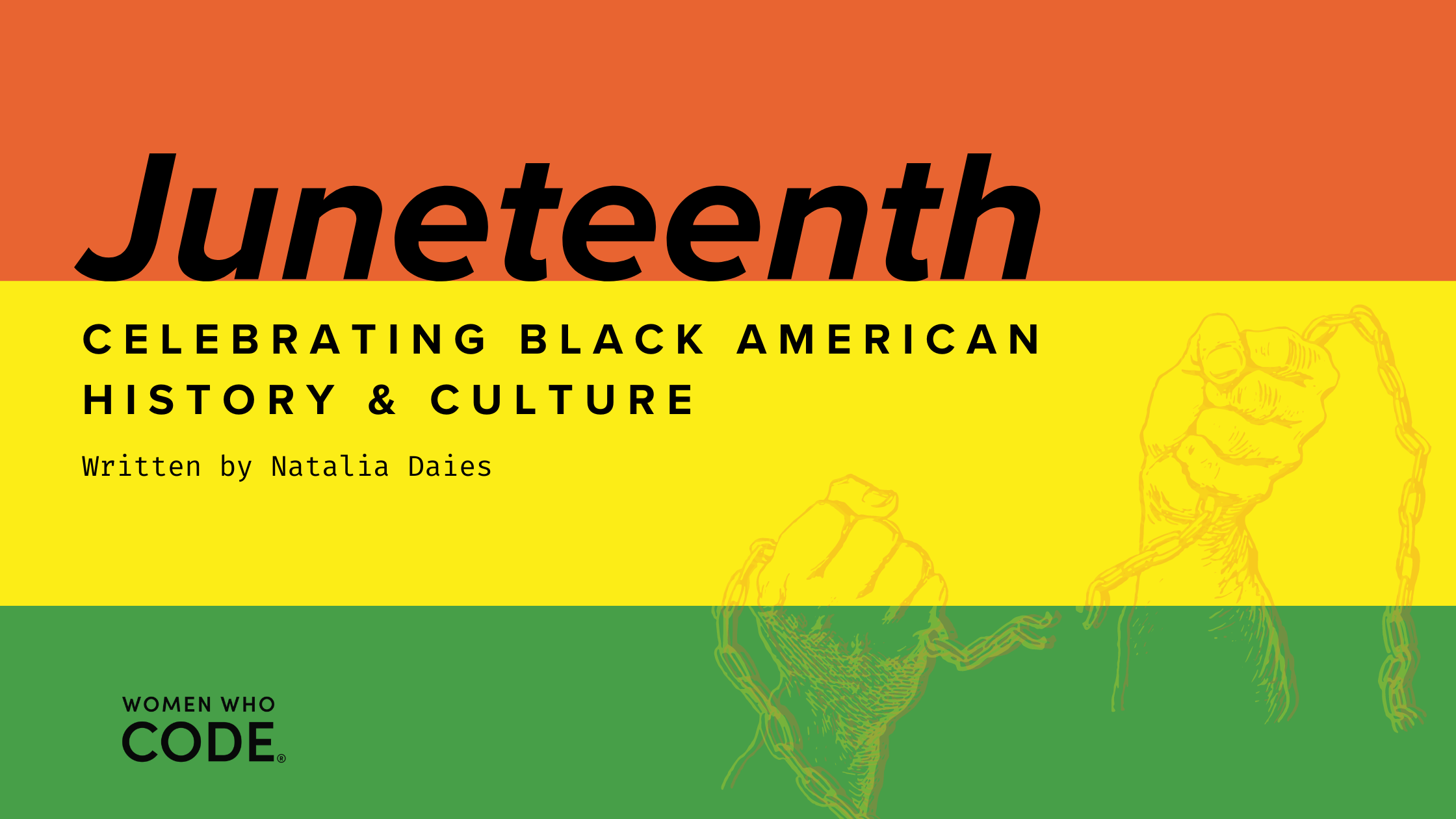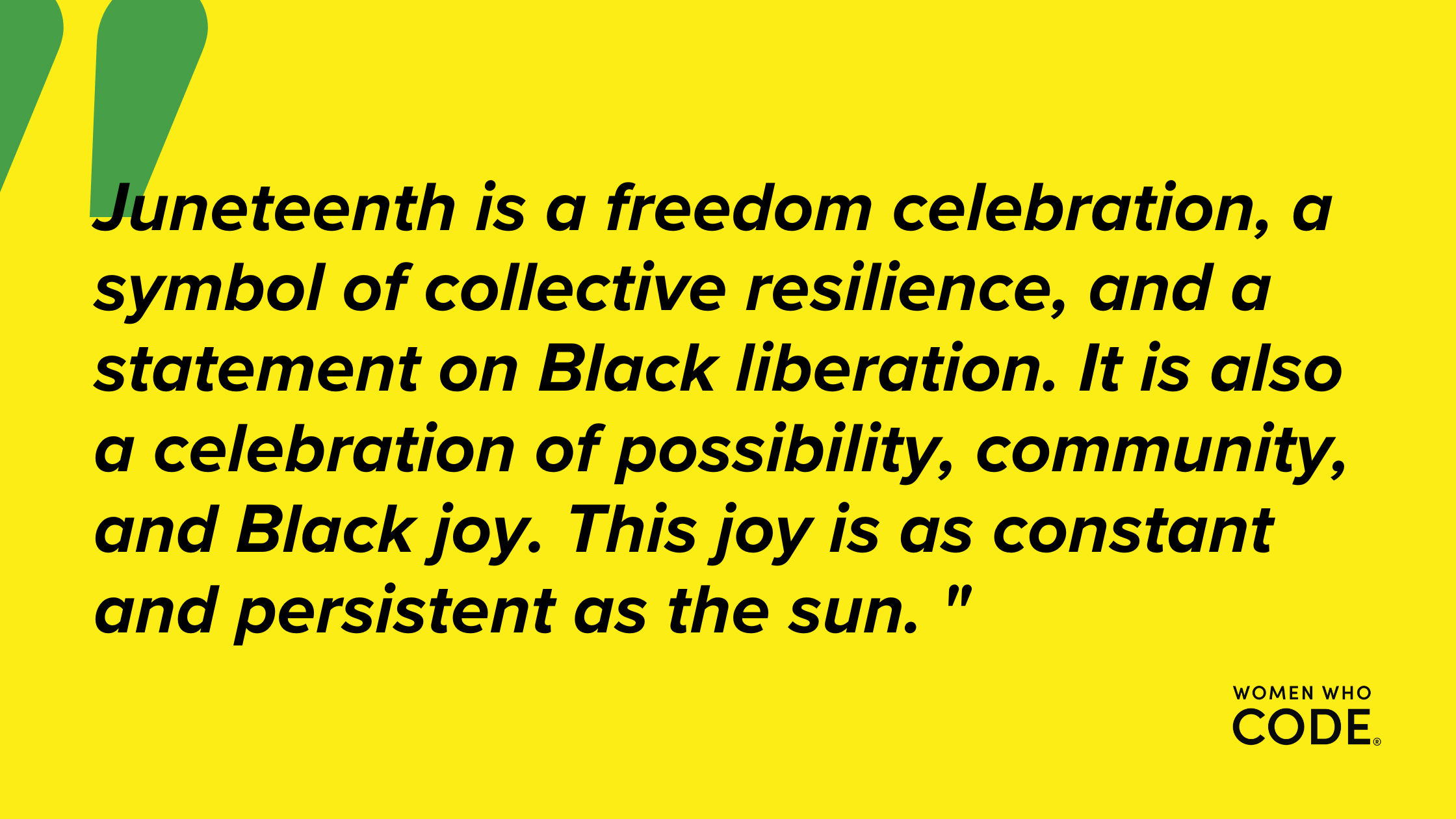Juneteenth: Celebrating Black American History & Culture
Written by Natalia Daies

In June of 2021, Juneteenth officially became the 11th holiday recognized by the federal government. While many Americans opposed Juneteenth becoming a national holiday believing it would conflict with Independence Day (Fourth of July), the truth is that for many in the Black community, Juneteenth embodies and reflects our lived and ancestral experiences more than any other celebration of American independence.
Before Juneteenth, or "Freedom Day," was a federal holiday, it was primarily a regional celebration for Black Americans in the South. Specifically, Black Texans would come together for parades, food, and music to observe what was previously a state holiday in celebration of Union soldiers' arrival in Galveston, Texas, on June 19, 1865, informing enslaved African Americans that they were free. This event marked the end of slavery in the Confederate states almost two and a half years after the Emancipation Proclamation was signed. The following year Black people gathered in Galveston for what was deemed a celebration of freedom or "Freedom Day."
Juneteenth celebrations spread across the United States as Black people migrated and continued throughout the era of Jim Crow and the Civil Rights Movement as a sign of courage. It is a symbol of Black American freedom, heritage, and culture. For many Black Americans, it is a day to reflect on our ancestors' struggles and resilience and our ongoing journey toward equity and justice.
In an interview with NPR, Anna Gifty Opoku-Agyeman said, "Juneteenth is something that is not necessarily part of the story of all Black folks in America, but it's part of Black America's story." Celebrating Juneteenth and Black American culture is powerful because it recognizes and honors Black American history, achievements, and contributions. It unifies and empowers the Black community while promoting awareness and understanding among people of all backgrounds.

Since Juneteenth became a federal holiday, many businesses and corporations have used the holiday as a marketing opportunity to sell products and services. Some people are concerned that this trend may detract from the historical and cultural significance of the day. The concern about commercialization makes it even more important to focus on the traditional and cultural importance of the holiday. Be empowered to emphasize the non-commercial aspect of Juneteenth by:
-
Educating people about its historical significance.
-
Encouraging them to support local and independent, Black-owned businesses instead of large corporations.
-
Promoting more sustainable and eco-friendly ways of celebrating Juneteenth.
As we seek ways to observe Juneteenth, may we not forget that Black American people and culture are not monoliths. Black Americans have played a significant role in global culture and society. Continuing to elevate those contributions helps promote understanding and equity among everyone. Juneteenth is a freedom celebration, a symbol of collective resilience, and a statement on Black liberation. It is also a celebration of possibility, community, and Black joy. This joy is as constant and persistent as the sun.
Here are five ways to celebrate Juneteenth and advocate for change:
-
Educate yourself and others by reading about the history of Juneteenth and its significance in Black American culture.
-
Donate to organizations that support racial justice and equality, such as PolicyLink, Race Forward, Color of Change, and the Black Youth Project.
-
Use social media to amplify Black voices and share information about the Black experience in America.
-
Follow organizations promoting personal and social wellness for Black women:
-
Therapy for Black Girls – an organization providing mental health resources
-
The Nap Ministry – the creator of "rest as resistance."
-
Center for Black Women's Wellness – an organization working to improve the health and well-being of Black women and their families
-
The Broke Black Girl – a financial activist and educational resource
-
Learn more about organizations celebrating play and nature – Black Girls Trekkin and Outdoor Afro.
-
Advocate for policy changes that promote racial justice, such as police reform and voting rights for all citizens.
-